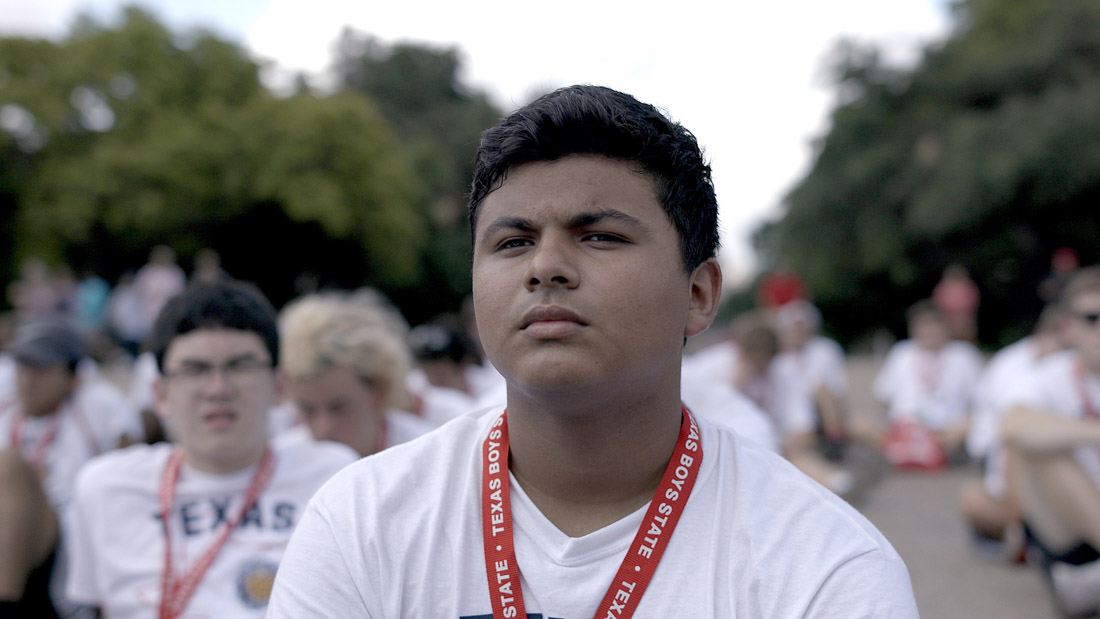By Laurie Coker
Rating: B-
Some people are born natural leaders, while others are fine tuned into leaders and Boys State, a documentary by Amanda McBaine and Jesse Moss highlights the roots of some of our most prominent leaders. The pair chronicles the experiences of a thousand 17-year-old boys from across Texas as they gather together to learn, grow and build a representative government from the ground up. It is a competition of sorts where the end results are lifelong lessons.
Of the thousand, who gather at the University of Texas and the Texas State Capitol in Austin, McBaine and Jesse Moss focus on four key players – Steven Garza, Ben Feinstein, Robert MacDougall and René Otero – dynamic young men with starkly different backgrounds and views. Predecessors to this prestigious program range from Bill Clinton and Dick Cheney to Rush Limbaugh and Mark Wahlberg who all attended Boys State at different times. During their time at Boys State, the boys vie for leadership roles, build governments, write and deliver passionate speeches and go toe-to-toe with others.
McBaine and Moss choose well and watching their youthful political players proves engaging and fascinating. While there is insight into more than the four on focus, with Ben, Steven, Robert, and René, their differences make for some interesting interactions. There are some heated discussions, passionate speeches, and undermining actions, and the directors catch it all. Regardless of the all-male group makeup, friendships, gossip, self-doubt, and posturing pour forth. On one hand it plays out a great deal like high school drama, but on the other, these young men are mature, ambitious, and single-minded.
Boys State provides a microcosm of politics in the real-world and reveals the underpinning of human differences in beliefs, foundations, and desires. The boys and those that follow are the future of American politics and sometimes, McBaine and Moss’ revelations are encouraging and terrifying, and their perspective is marvelous. As the week culminates into a huge assembly and the final vote for “governor,” one cannot help but note the predominately white attendees and of course, the lack of females in the group. Otero (a Chicago transplant) even points out his blackness in the sea of white faces.
Boys State is an insightful study of politics and of coming of age for boys gearing up to be men the political arenas. It’s an overnight camp without the tents. There is a great deal of chest pounding and postulating that likely reflects the real-world political environment. McBaine and Moss capture challenges in putting this much testosterone in one place – and watching dreams be made and dashed makes it all the more real. Boys State earns a B- in the grade book. It is worthy of a look.
